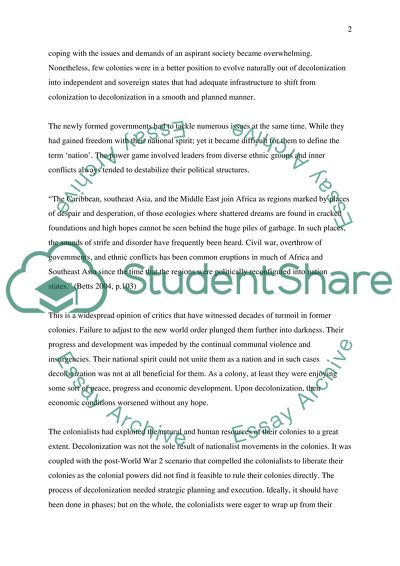Cite this document
(“Was decolonisation beneficial for the development of the former Essay”, n.d.)
Retrieved from https://studentshare.org/environmental-studies/1418168-was-decolonisation-beneficial-for-the-development
Retrieved from https://studentshare.org/environmental-studies/1418168-was-decolonisation-beneficial-for-the-development
(Was Decolonisation Beneficial for the Development of the Former Essay)
https://studentshare.org/environmental-studies/1418168-was-decolonisation-beneficial-for-the-development.
https://studentshare.org/environmental-studies/1418168-was-decolonisation-beneficial-for-the-development.
“Was Decolonisation Beneficial for the Development of the Former Essay”, n.d. https://studentshare.org/environmental-studies/1418168-was-decolonisation-beneficial-for-the-development.


